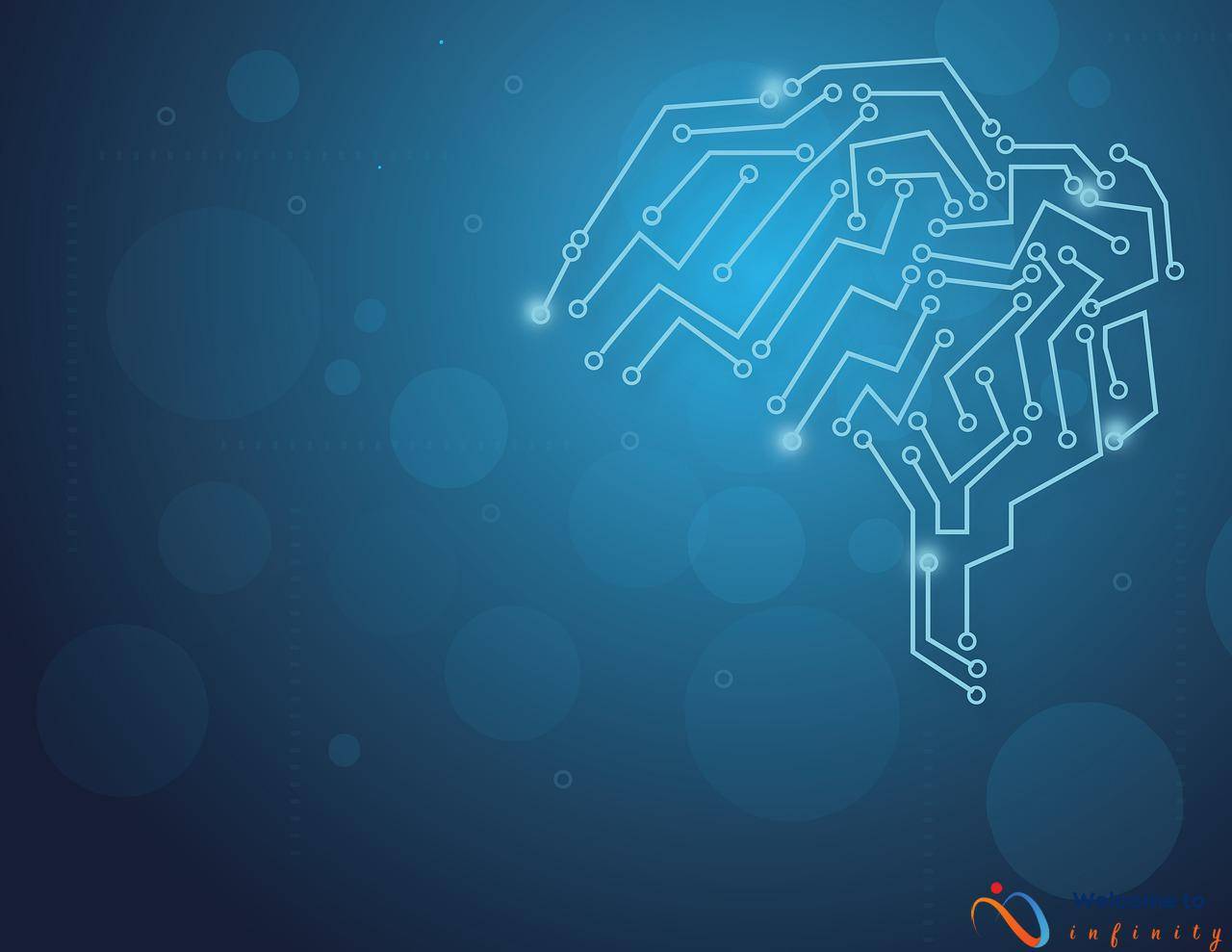Artificial intelligence (AI) is a rapidly growing field that is revolutionizing drug delivery research. AI is being used to optimize drug delivery strategies and improve patient outcomes by personalizing drug treatments through precision medicine and targeted therapies.
With the use of AI, healthcare providers can identify patient-specific characteristics that may affect drug absorption, distribution, metabolism, and excretion. This personalized approach to drug delivery aims to improve treatment outcomes and minimize adverse effects. AI also helps in targeting specific molecular targets associated with a disease, which is the driving force behind targeted therapies.
AI helps pharmaceutical researchers to develop drugs that have little to no side effects and effectively reach the targeted areas in the body. It is used to optimize drug formulations and create delivery systems that can bypass biological barriers and deliver drugs to specific sites in the body. AI is being used to create pharmacokinetic models that can predict how drugs will be distributed and metabolized in the body. With this, researchers can design drug delivery systems that can maximize drug efficacy while minimizing adverse effects.
The use of AI in drug delivery research is still in its early stages, but it has the potential to revolutionize the way drugs are developed and delivered personalized for individual patients. As the technology develops, we can expect to see an increasing number of precision medicine and targeted therapies become available to patients.
AI in Precision Medicine
AI is playing a crucial role in the development of precision medicine, which focuses on designing treatments that cater to an individual's specific needs. With this approach, AI is being used to identify patient-specific characteristics that may affect drug absorption, distribution, metabolism, and excretion. The idea is to personalize drug delivery to improve treatment outcomes and minimize adverse effects.
AI algorithms can identify factors such as a patient's age, sex, weight, genetics, lifestyle habits, and medical history that may influence how a particular drug interacts with their body. By analyzing vast amounts of data, AI algorithms can predict how different patients will respond to a specific drug, enabling physicians to develop more effective and targeted treatments.
One of the most significant advantages of using AI in precision medicine is the ability to identify biomarkers, which are specific biological characteristics that can indicate a patient's likelihood of developing a particular disease or responding to a particular treatment. AI algorithms can quickly analyze vast amounts of data to identify biomarkers and predict how they might influence a particular drug's efficacy in individual cases.
Overall, AI in precision medicine is transforming the field of drug delivery by enabling researchers to develop targeted therapies that improve patient outcomes while minimizing adverse effects.
AI in Targeted Therapies
Targeted therapies are a relatively new approach to treating diseases that have been made possible thanks to advances in our understanding of molecular biology. Rather than targeting the symptoms of a disease, targeted therapies are designed to address the underlying causes. This requires identifying specific molecular targets associated with a disease, and developing drugs that can interact with these targets in a precise and controlled manner.
AI has been instrumental in making the development of targeted therapies more efficient and effective. By analyzing vast amounts of data, AI algorithms can quickly identify potential targets for drug development, predict which patients are most likely to benefit from treatment, and even anticipate potential side effects. This allows researchers to prioritize targets that are most likely to result in positive outcomes while minimizing harm.
One notable example of the use of AI in targeted therapies is in cancer treatment. Using advanced imaging technologies, researchers can create high-resolution images of tumors, and use AI algorithms to identify unique molecular signatures associated with specific types of cancer. These molecular signatures can then be used to develop drugs that specifically target cancer cells while leaving healthy cells intact. This approach results in more effective treatments with fewer side effects, addressing many of the limitations of traditional chemotherapy and radiation therapies.
Furthermore, the use of AI in targeted therapies has led to a shift away from the traditional one-size-fits-all approach to drug development. Instead, drugs can be tailored to the specific molecular characteristics of an individual patient's disease, increasing the likelihood of successful treatment outcomes. This personalized approach to drug development has already shown promising results in clinical trials and is expected to become increasingly common in the future.
Overall, the use of AI in targeted therapies has opened up new avenues for effective and efficient drug development, and has the potential to transform the way we approach disease treatment. As the field of AI continues to advance, we can expect to see more breakthroughs in personalized medicine and an increasing number of targeted therapies become available to patients.
Drug Formulation
Artificial intelligence is playing a crucial role in the optimization of drug formulations for targeted therapies. This involves the development of drug delivery systems that can effectively target specific cells or tissues in the body, ensuring that the drugs are released in a controlled and predictable manner.
- One of the main challenges in drug formulation is finding ways to target specific cells or tissues while avoiding healthy tissues. AI is being used to create models that can predict drug behavior in vivo, which can help in the development of targeted therapies.
- In addition, AI is being used to optimize drug delivery systems to ensure that drugs are released in a controlled way. This allows for a more consistent and predictable drug response, minimizing the risk of adverse effects and improving treatment outcomes.
- Researchers are also exploring the use of AI to develop new drug formulations. By analyzing large data sets, AI can identify new drug combinations or develop entirely new classes of drugs. This could lead to the development of new treatments for diseases that are currently difficult to treat.
Overall, the use of AI in drug formulation has the potential to revolutionize the way drugs are developed and delivered. By improving drug targeting and delivery, AI can help to minimize the risk of adverse effects and improve treatment outcomes, ultimately improving patient care and outcomes.
Drug Delivery
Through the use of AI, researchers are developing drug delivery systems that can bypass biological barriers in the body and target specific sites for maximum efficacy. Nanoparticles are being developed using nanotechnology that can target cancer cells specifically, making for a more effective treatment. Another approach to personalized drug delivery is the use of microfluidics, which create personalized drug delivery devices. These devices are tailored to each individual patient and can deliver the precise dose of medication to the specific site needed.
By using AI to design drug delivery systems, researchers can improve delivery efficiency and maximize medication efficacy while minimizing potential adverse effects. These systems ensure that drugs are delivered exactly where they are needed in the body, increasing their effectiveness and reducing unnecessary exposure to healthy tissues and organs.
Moreover, drug delivery systems designed through AI are capable of delivering a wide range of medications. From chemotherapy drugs to mind-altering medications, the use of AI can revolutionize the way certain illnesses are treated.
The advancements in drug delivery using AI and nanotechnology hold great promise for the future of personalized medicine. AI has the potential to craft drug delivery systems that can deliver medication with incredibly high precision.
Pharmacokinetic Modeling
Pharmacokinetic modeling involves the study of how drugs are absorbed, distributed, metabolized, and excreted in the body. By using AI to create pharmacokinetic models, researchers can predict how drugs will interact with different tissues and cells in the body. This allows them to design drug delivery systems that can target specific tissues or cells while minimizing the risk of adverse effects on other parts of the body.
Pharmacokinetic modeling also allows researchers to optimize drug dosing. By understanding how drugs are metabolized and excreted in the body, researchers can design drug delivery systems that deliver the appropriate amount of drug at the right time to maximize efficacy while minimizing adverse effects.
AI is transforming pharmacokinetic modeling by enabling researchers to analyze vast amounts of data and identify patterns that would be impossible to detect using traditional methods. For example, AI can be used to analyze genetic data to identify patients who are at increased risk of developing drug toxicity or to predict how individual patients will respond to different dosing regimens.
Overall, the use of AI in pharmacokinetic modeling has the potential to revolutionize drug development and delivery by enabling the development of highly personalized drug delivery systems that maximize efficacy while minimizing adverse effects.
The Future of AI in Drug Delivery
The current use of AI in drug delivery research is only scratching the surface of the technology's potential. As AI continues to develop and become more advanced, it has the ability to completely transform the way drugs are developed, delivered, and personalized for each individual patient.
One of the most significant benefits of using AI in drug delivery is the ability to develop precision medicine. By analyzing patient-specific characteristics, such as genetics and environmental factors, researchers can determine the most effective drug delivery strategy for a particular patient. This personalized approach to drug delivery aims to improve treatment outcomes and minimize adverse effects.
Furthermore, AI has the potential to greatly improve the development of targeted therapies. The technology can be used to identify the molecular targets linked to a particular disease, and predict which patients are most likely to benefit from treatment. This approach allows for more efficient drug development and delivery, with a focus on treating the source of the disease rather than its symptoms.
AI technology, such as machine learning and data analytics, can also aid in the optimization of drug formulations and drug delivery systems. Researchers can use data gathered from previous drug delivery and clinical trials to create pharmacokinetic models that can predict drug distribution in the body and optimize drug efficacy. Additionally, AI can be used to design drug delivery systems that can effectively target specific tissues and cells, ensuring controlled and effective drug delivery.
The future of AI in drug delivery is incredibly exciting. We can expect to see more efficient and personalized drug delivery methods, as well as the development of an increasing number of precision medicine and targeted therapies. With continued development and implementation of AI technology in drug delivery research, we can improve patient outcomes and revolutionize the pharmaceutical industry as a whole.












